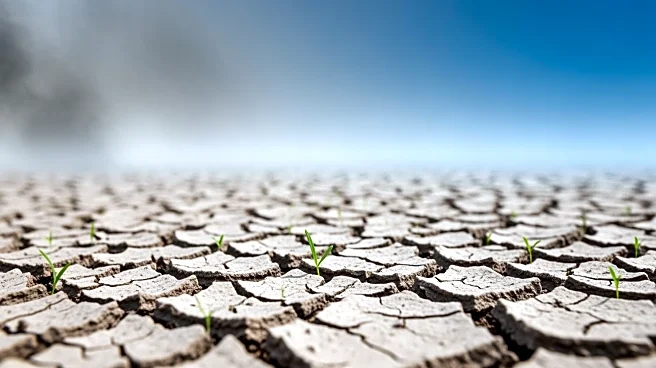What's Happening?
The 36th Bienal de São Paulo, titled 'Not All Travellers Walk Roads—Of Humanity as Practice,' is set to open, drawing inspiration from a poem by Afro-Brazilian writer Conceição Evaristo. The event, curated by Bonaventure Soh Bejeng Ndikung, explores themes of silence, ancestry, and resistance, challenging the hypervisibility often associated with biennials. The exhibition features 125 artists, including 28 Brazilians, with many works being new commissions. The biennial also introduces a performance program, 'Tributaries,' in collaboration with Casa do Povo, a cultural center known for its progressive history. This edition seeks to highlight marginalized voices and narratives often excluded from mainstream discourse.
Why It's Important?
The Bienal de São Paulo is a significant cultural event that influences global art trends and discussions. By focusing on themes of silence and marginalized narratives, this edition challenges traditional art exhibition norms and encourages introspection and dialogue about underrepresented communities. The inclusion of diverse artists and new commissions reflects a commitment to innovation and cultural inclusivity. This approach not only enriches the cultural landscape but also prompts broader societal reflections on issues of identity, history, and resistance. The biennial's impact extends beyond the art world, potentially influencing cultural policies and practices in Brazil and internationally.
What's Next?
The Bienal de São Paulo will run from September 6, 2025, to January 11, 2026, with various performances and exhibitions scheduled throughout. The event is expected to attract international attention, fostering discussions on the themes presented. The success of this biennial could inspire similar approaches in other cultural events, promoting a more inclusive and reflective art scene. As the biennial progresses, feedback from artists, critics, and audiences will likely shape future editions and influence the broader art community's engagement with themes of silence and marginalized voices.










